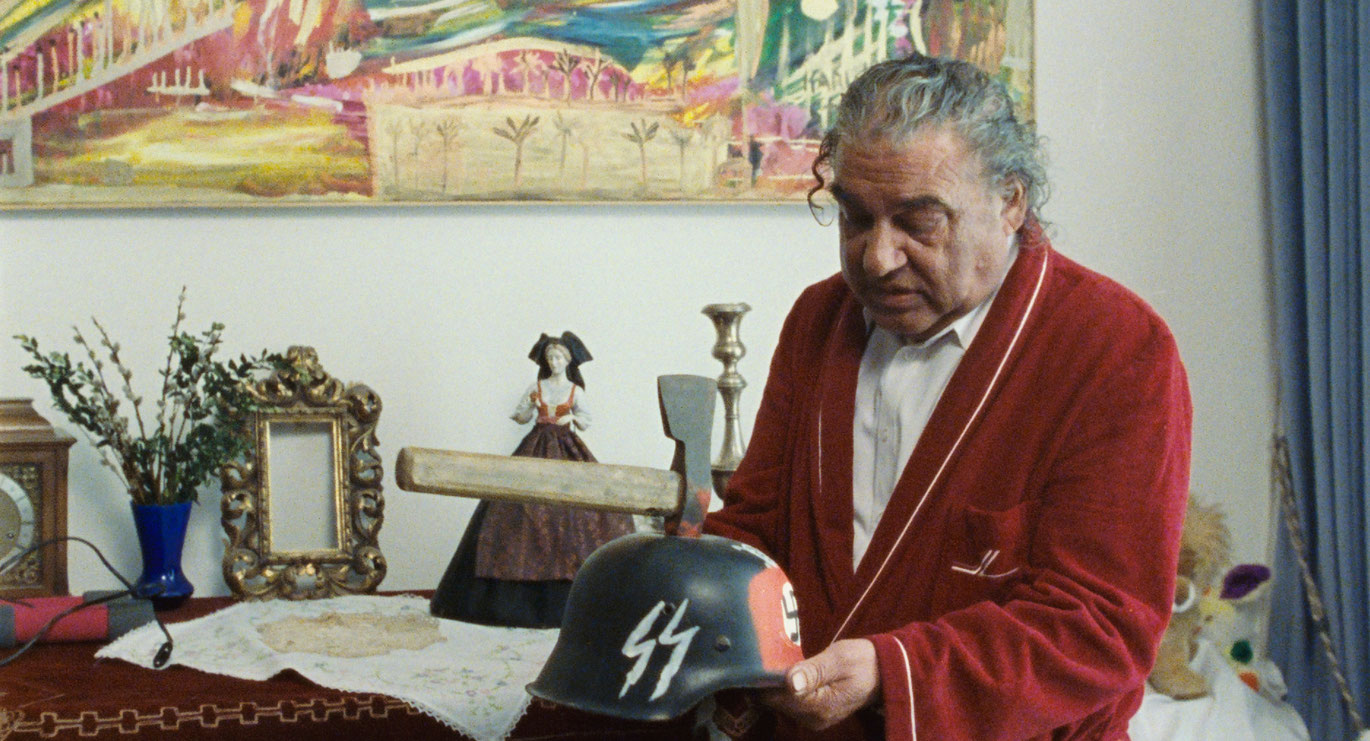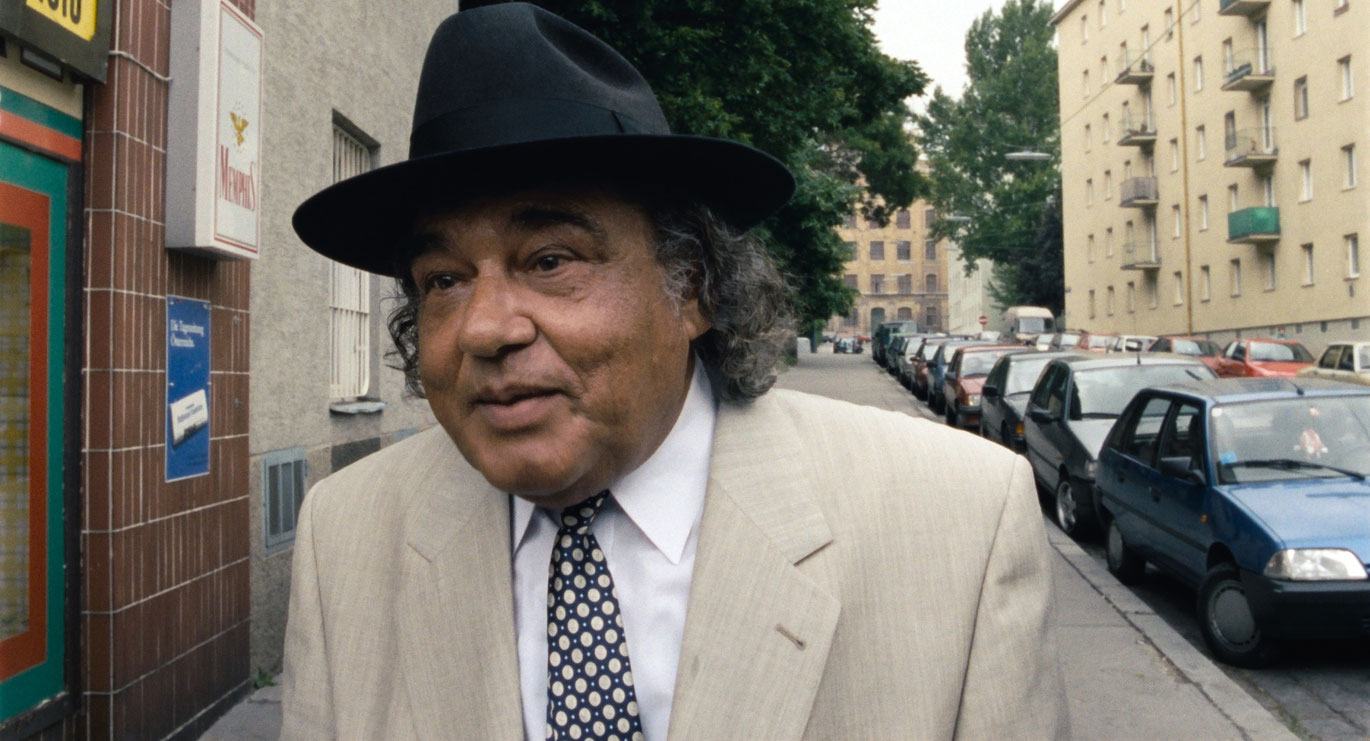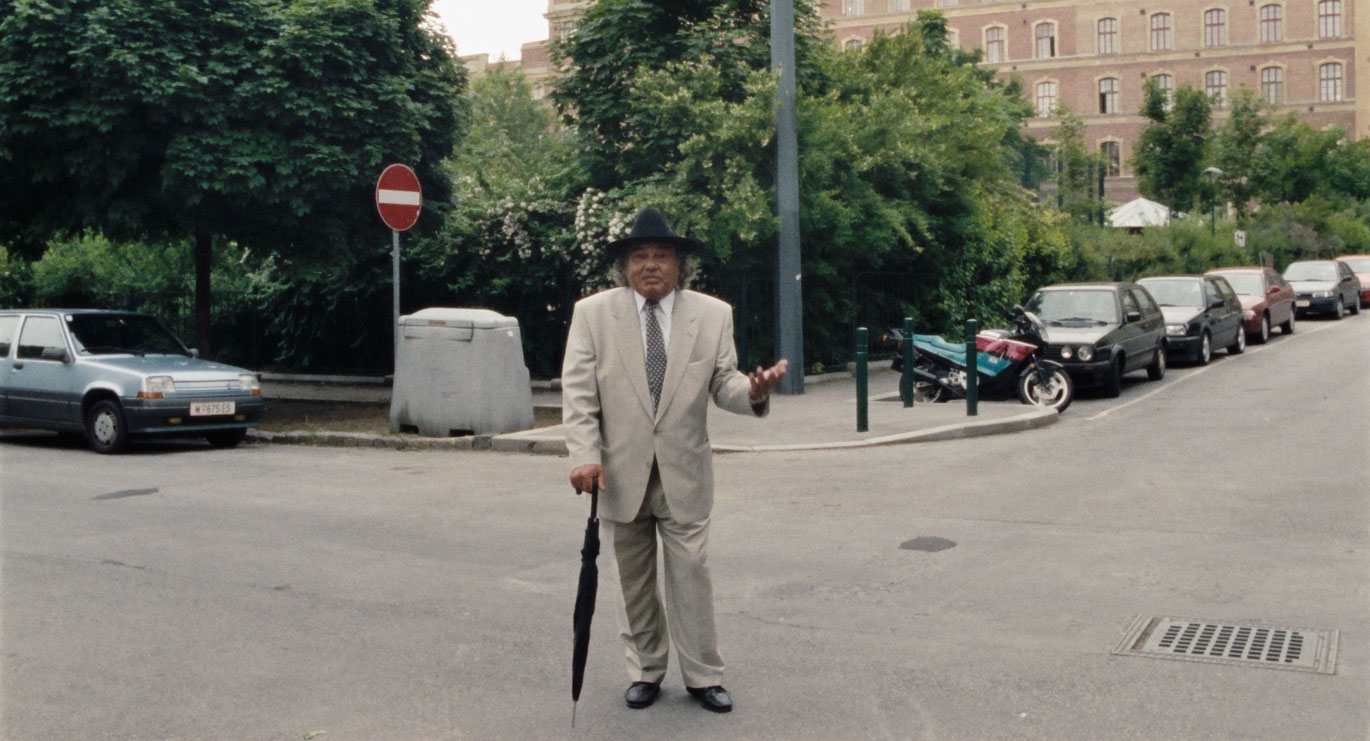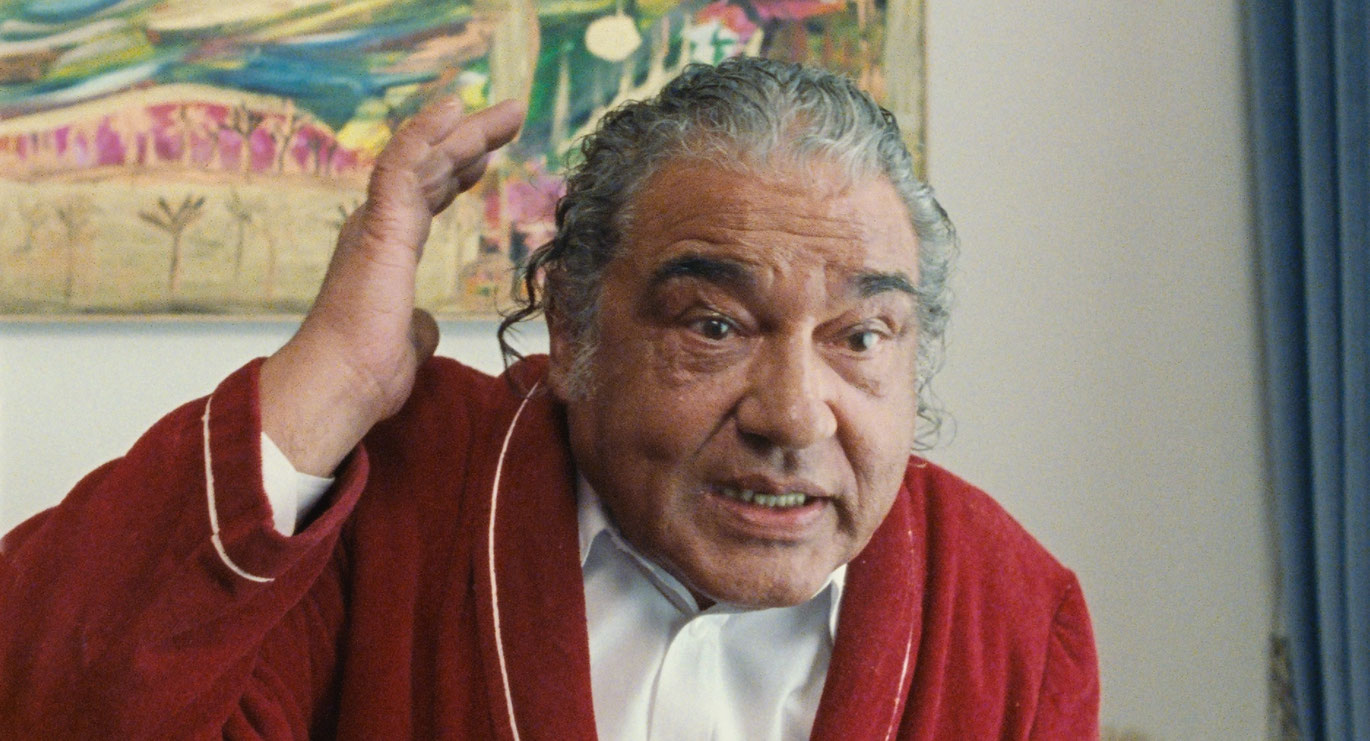Wankostättn
Karl Stojka stands in a light-colored suit with elegant hat and tie on Quellenstraße, a street in Vienna’s Favoriten district, a former working class neighborhood in Vienna. We are drawn into the pull of his memories. The short documentary Wankostättn is based on interviews that Karin Berger carried out with Karl Stojka in 1997. As a twelve-year-old child, he was deported with his five siblings to the Auschwitz-Birkenau concentration camp. He survived, as did his younger sister Ceija Stojka, whom Karin Berger already portrayed previously in two poignant films. The current film resulted from a close personal bond between the filmmaker and Ceija and Karl Stojka, and is an unparalled film about a lost site of memory.
As he walks, Karl Stojka tells of this place, of his childhood on the “Wankostättn,” the Wankofield in Vienna, where there was a large camp for the Romani and Sinti until 1941. In the black-and-white photos taken by the national socialists for assessement purposes, visible are the camp, the horse carriages, and mainly women and children. Through the narrated memories, Karl Stojka translates the images of the “Wankostättn,” which is shown briefly in the film, into a powerful, personal memory image.
The existence and survival of history in a present day of invisible Antiziganism is given an eerie face as the camera captures everyday street scenes, gray residential buildings, and parking cars at the visual level, and Karl Stojka talks of horse-drawn wagons, of the imprisonment and violent erasure of his family, but also of good relationships with a lot of the Viennese people.
In the final part of the film, in the intimacy of his living room, Karl Stojka recalls his liberation as a fourteen-year-old boy on the death march to the Flossenbürg concentration camp. He shows the filmmaker and the imagined audience an artistic object that he made, a helmet with a pickaxe stuck in it. This visually and dramaturgically fascinating closing sequence once again effortlessy spans the relationship of protagonists and victims, of survival and trust, of agency, authentication, and handing on.
The camera frees a space for the invisible reality of history. (Monika Bernold)
Translation: Lisa Rosenblatt
Several of the recordings made during the shooting of Karin Berger’s film Ceija Stojka (1999) show Karl Stojka emotionally telling of the life of the Roma in national socialist Vienna and in the Wankostättn camp. In a present day when the last contemporary witnesses are dying, the filmmaker takes a stand against the impending silence and demonstrates one of cinema’s essential functions. (Diagonale)
Wankostättn
2023
Austria
37 min




